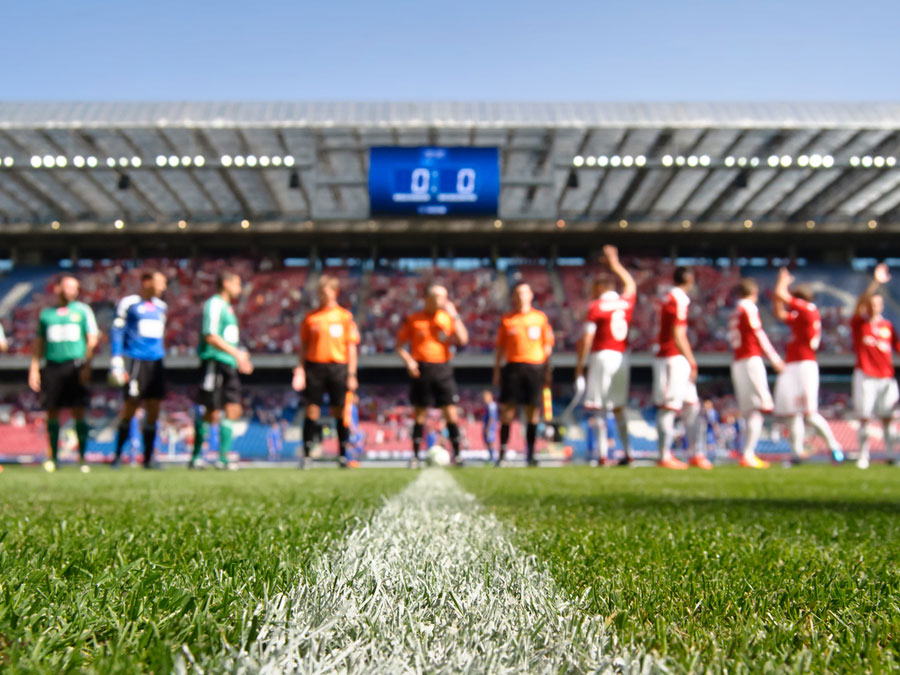“Financial Fair Play” impedes stronger competition
UEFA regulations benefit rich soccer clubs

Many fans have been complaining for years that the influence of investors in soccer has extinguished fair, exciting competition. This was one of the reasons why the UEFA introduced a set of regulations titled “Financial Fair Play” in 2012, which prevents clubs from spending considerably more than they earn over certain periods of time, exceeding certain debt limits, and accepting any payments from investors that are not in line with customary market practices.
But can the “Financial Fair Play” policy really reduce economic inequality between clubs? In order to find out, economists of TUM initiated the first empirical examination of the effect of “Financial Fair Play” using comprehensive calculations to evaluate league data from England, France, Germany, Italy, and Spain for the seasons from 2004/05 through to 2014/15. League-, club-, and season-specific effects such as developments in income from TV rights were taken into account.
Even greater differences in the market value of the teams
In order to determine how much competition there was within leagues, the economists analyzed three key factors: the betting odds of matches (as an indication of the uncertainty of the results), the distribution of points in the league tables, and the proportion of points earned by the five most successful teams. The result: After the introduction of “Financial Fair Play”, the level of competition in the five leagues has dropped considerably.
In order to figure out why, the scientists established the following correlations: The greater a club’s success within one year, the more they invest in new players for the following season. And the greater the difference in market value between teams, the less balanced the competition. On the surface, these results are not surprising. However, the study reveals an increase in both the proportional contribution of successful clubs to their leagues’ overall transfer budget and the gap between the market values of teams since the introduction of “Financial Fair Play”.
“UEFA Financial Fair Play didn't reduce inequality between clubs, but rather increased it further,” says study author Prof. Christoph Kaserer of the Chair of Financial Management and Capital Markets at TUM.
Investors have a positive influence on competition
The finance experts uncovered a possible cause for these changes in a further analysis. They related the degree of competition to the proportion of clubs with at least one investor and the investors’ contributions per season. The result contradicts common perceptions of the influence of investors. The analysis shows that their activity has a positive effect on competition. After the introduction of “Financial Fair Play”, however, this effect was reduced – to the advantage of established clubs.
“Investors can break up established structures and thus strengthen competition – similar to what we have seen with venture capital in economics,” explains co-author Dr. Daniel Urban. “The UEFA’s regulations, however, seem to have set too high barriers for investors looking to start sponsoring smaller clubs. Due to the financial caps, potential financiers don’t see a chance for financially weaker clubs to transform into internationally competitive teams by means of their investment. This is how “Financial Fair Play” solidifies existing hierarchies.”
Economists recommend greater financial transparency
The study authors therefore recommend that “Financial Fair Play” regulations should be changed to make smaller clubs more attractive to investors without sacrificing the goal of financial stability. The conditions introduced for the licensing period from 2015 to 2018, which offer more flexibility to clubs currently experiencing upheaval or going through a developmental stage, are thus a step in the right direction. According to the authors, there is also room for improvement when it comes to the economic transparency of clubs. The UEFA could, for example, tighten reporting rules and make audits similar to those applied to corporations mandatory.
“Clubs and soccer associations could take some cues from the business world on how to combine the free market, competition regulations, and good management practice,” says Kaserer. “Following extensive debates, corporate governance in large enterprises has undergone substantial transformation over the past 15 years. Soccer could follow the lead in order to avoid losing the acceptance of fans.”
Publication:
Birkhäuser, Stephan and Kaserer, Christoph and Urban, Daniel, Did UEFA’s Financial Fair Play Harm Competition in European Soccer Leagues?, 2016; DOI: 10.2139/ssrn.2759335
Contact:
Prof. Christoph Kaserer
Technical University of Munich
Chair of Financial Management and Capital Markets
Tel.: +49 89 289 25490
Mobile: +49 162 2918349
christoph.kaserer@tum.de